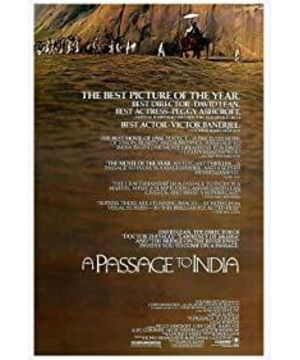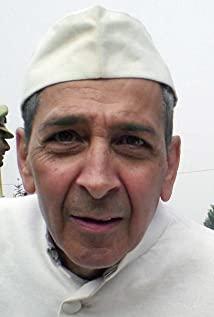The 5th screening day of the main competition unit of the 17th Faroe Island Film Festival brings you "Journey to India". Let's see how the frontline women who step into unfamiliar regions face the reality evaluation!
all:
A flowing look.
Catcatcatyang:
How humans recommunicated in postcolonial times.
Spy Liu:
The film is very delicate, but there are few aftertastes, and the film does not need to be so long, it can be simplified.
Donnie:
Every time David Lean shoots this kind of story of white people coming to the third world, it's really hard to like it, and Hiroko is sick to watch the noble life the British are trying to maintain there. I also don't expect you to seriously talk about the systemic issues of colonization, please don't make any themes, and don't use emotions as a substitute for structural issues...
Matsuno Somatsu:
Exoticism is mysticism for foreign cultures. It can be said that after the heroine came to India, she discovered her unknown emotions, including that she did not love her fiancé, and those unspeakable emotions, but these emotions can be awakened in the cave through sculpture. Through its recycling, what is left in the end is nothing more than words and phrases.
Pours full of Zhao +:
This kind of serious storytelling feels good, and every time the camera cuts to the landscape, there is always a rustic beauty. At first I thought it was a fairy tale that was too "old-time Hollywood". The villains, the ignorant and the framed all performed under the inherent mask. The transformation of the doctor near the end made me feel similar to "The Bridge on the River Kwai". "The surprise at the end, it is only complete with such a transformation of the character arc.
Wangzai puppy:
India is still very interesting, and it is always exciting to hang trains in the mountains and green spaces. / The bridge of the people who climb the high is confused, like "Picnic on the Cliff"... / Both the author and the director of the original book have intensive experience after living in India, which indeed eliminates many unavoidable self-confidence fetish. / In addition to being fun, Indian culture does have a deterrent effect on the imaginary "other" of Europeans and Americans. After all, the female protagonists of all kinds of chick films tend to go to India for meditation when they are bored in European and American cities.
Midnight no one:
The confrontation between two ideologies or even two racial civilizations should be in a very ambiguous context, or at least the tone of "Picnic on the Cliff". It would be too rigid to do so, especially It is the ending that pushes all the contradictions to the most common stage in Hollywood movies - the courtroom, which is simply too old. In the cave, the heroine feels the collapse of the order that has been guarded in her heart is the most beautiful part. Just like the colonial contradiction between the Indians and the British, they abide by each other's politeness and even cross the line to flatter each other, but as long as the thorn itself is not removed , it should collapse or it will collapse, but the coincidence of the two layers of relationship is only completed in the concept of the film's straightforward display, and has no expressive force in the image itself.
Cangshan ancient well empty to the moon:
It can be seen that I want to express some conflicts or differences between the people of the two countries during the British colonial period of India. The overall shooting is still too civilized. The characters involved are all elites, and the essential things are not touched. The core of the conflict is lust. replaced. However, there is still a certain degree of curiosity to criticize Westerners, which is what we call "Ye Gong loves dragons". And Indians, even if they are intellectuals and elites, are always unable to integrate into other people's groups. The protagonist Ace returns to Indian clothing from the suit at the beginning to the end, and the characters are still complete. Feiting, who is friends with Indians, and a slightly naughty Indian professor, arranges one for different groups of people, which is very neat, which makes the whole story less interesting. Lean's outdoor panoramic photography is still very pleasing to the eye.
Psychedelic Muffins:
This movie is a very satirical movie in my opinion. Apart from some great principles of discrimination, resistance, and equality, what I find most ironic is that this film, or the novel from which the film is adapted, still portrays India and the Indian people from the perspective of a white colonist, and satirizes Britain. Discrimination against the colonized and reflecting the awakening of Indian nationalism, it is the colonizers who have the right to speak from beginning to end. Reminds me of what I read in a book before: in the semi-colonial period of China, many foreign journalists deliberately took some "documentary photos" that were not common in backward China at that time but fit the stereotype of the East and backwardness. I think our people and the Indian people can resonate to a certain extent. I still want to have the opportunity to hear the Indian people tell their own stories.
Ou Yin:
Much nicer than expected, but made me more sure about "don't like David Lean", maybe because I thought he was dealing with too much scribbling in the text. Travel is a natural metaphor for the conflicting cultures of different groups. In addition to the background of the film, you can already know the location of the film without knowing the plot. Originally, both sides had the mentality of eliminating prejudice - the female protagonist was curious and respectful to India, and the male protagonist was friendly but slightly flattering to the United Kingdom, but under certain circumstances, class conflicts still inevitably broke out, perhaps inherent prejudice or It is worthwhile to say that the natural resistance to strange things is difficult to eliminate after all, so I also feel that the final "happy reunion" ending of this film is too "the main theme". In addition, I don't like the Indian Philosopher/Metaphysics master in the film, this character is simply metaphysics for the sake of metaphysics, and is ultimately over-interpreted by film critics.
DAY5's main competition publication will be released later, please wait and see.
View more about A Passage to India reviews











